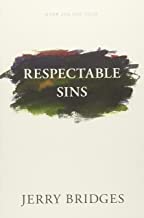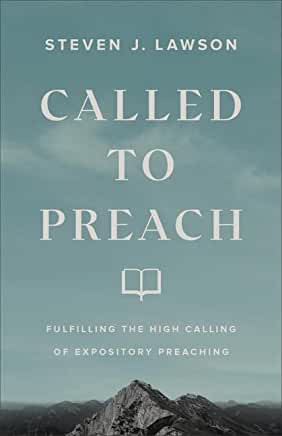I love when well-known Christian pastors, theologians, and websites begin posting their favorite reads of the year. Many of these books eventually end up on my shelf or in my hands.
In this blog, I’ll post my ten favorite reads of 2022 (in no particular order), and then I’ll post a link to other people’s favorite reads. My list will include books published in various years (the book descriptions are from Amazon). Other people’s lists will usually pertain to books published in 2022.
Respectable Sins by Jerry Bridges
“Have we become so focused on ‘major’ sins that we’ve grown apathetic about our subtle sins? Renowned author Jerry Bridges takes you into a deep look at the corrosive patterns of behavior that we often accept as normal, in this established and impactful book. Practical, thought-provoking, and relevant at any stage of life, Respectable Sins addresses a dozen clusters of specific ‘acceptable’ sins that we tend to tolerate in ourselves, such as: jealousy, anger, judgementalism, selfishness, pride.
Writing from the trenches of his own battles with sin, Bridges offers a message of hope in the transforming grace of God to overcome our ‘respectable sins.’ Now with an added study guide for personal use or group discussion so you can dive deeper into this staple of Jerry Bridges’s classic collection.”
“Read this book―we need to―and be ready for a gentle surgeon’s sharp knife.” ―J. I. Packer, author and speaker
Providence by John Piper
“From Genesis to Revelation, the providence of God directs the entire course of redemptive history. Providence is ‘God’s purposeful sovereignty.’ Its extent reaches down to the flight of electrons, up to the movements of galaxies, and into the heart of man. Its nature is wise and just and good. And its goal is the Christ-exalting glorification of God through the gladness of a redeemed people in a new world.
Drawing on a lifetime of theological reflection, biblical study, and practical ministry, pastor and author John Piper leads us on a stunning tour of the sightings of God’s providence―from Genesis to Revelation―to discover the all-encompassing reality of God’s purposeful sovereignty over all of creation and all of history. Piper invites us to experience the profound effects of knowing the God of all-pervasive providence: the intensifying of true worship, the solidifying of wavering conviction, the strengthening of embattled faith, the toughening of joyful courage, and the advance of God’s mission in this world.”
Holiness by J.C. Ryle
“‘Holiness: Its Nature, Hindrances, Difficulties, and Roots’ is perhaps J. C. Ryle’s best-known and, arguably, best-loved book. Although many things have changed since 1877, when this book was first published, one thing remains the same: ‘real practical holiness does not receive the attention it deserves.’
It was to remedy this attention deficit, and to counter false teaching on this most important subject, that Ryle took up his pen. The twenty-one chapters in this enlarged edition highlight: -The real nature of holiness -The temptations and difficulties which all must expect who pursue it -The life-transforming truth that union with Christ is the root of holiness -The immense encouragement Jesus Christ holds out to all who strive to be holy. Holiness, as with all of Ryle’s works, is clear and concise, penetrating and practical.”
Spurgeon the Pastor: Rediscovering a Biblical and Theological Vision for Ministry by Geoffrey Chang
“How would you get more than 5,000 people to show up at your church? Almost every pastor feels the pressure to get people in the doors. More people means more success, more stability, and more godly influence, right? Often, in their zeal for fruit and growth, pastors and church leaders adopt worldly mechanisms for church growth that end up undermining the very call God has given them.
Charles Spurgeon, the Prince of Preachers, was a pastor to well over 5,000 people in a day long before ‘mega-churches’ were the norm. But you might be surprised to know that Spurgeon’s vision for ministry was not pragmatic. He did not borrow ‘best practices’ from the business leaders of his day. Rather, his ministry vision was decidedly, staunchly biblical and theological in nature—and it was a ministry vision we ought to adopt more than a century later.
In Spurgeon the Pastor, Geoff Chang, director of the Spurgeon Library at Midwestern Seminary, shows how Spurgeon models a theological vision of ministry in preaching, baptism and the Lord’s supper, meaningful church membership, biblical church leadership, leadership development, and more. Don’t get caught up in worldly methods to pursue ministry growth. Follow the example of the Prince of Preachers, and entrust your ministry to the sovereignty of the Prince of Peace.”
Blessed: A History of the American Prosperity Gospel by Kate Bowler
“How have millions of American Christians come to measure spiritual progress in terms of their financial status and physical well-being? How has the movement variously called Word of Faith, Health and Wealth, Name It and Claim It, or simply prosperity gospel come to dominate much of our contemporary religious landscape?
Kate Bowler’s Blessed is the first book to fully explore the origins, unifying themes, and major figures of a burgeoning movement that now claims millions of followers in America. Bowler traces the roots of the prosperity gospel: from the touring mesmerists, metaphysical sages, pentecostal healers, business oracles, and princely prophets of the early 20th century; through mid-century positive thinkers like Norman Vincent Peale and revivalists like Oral Roberts and Kenneth Hagin; to today’s hugely successful prosperity preachers.
Bowler focuses on such contemporary figures as Creflo Dollar, pastor of Atlanta’s 30,000-member World Changers Church International; Joel Osteen, known as ‘the smiling preacher,’ with a weekly audience of seven million; T. D. Jakes, named by Time magazine one of America’s most influential new religious leaders; Joyce Meyer, evangelist and women’s empowerment guru; and many others.
At almost any moment, day or night, the American public can tune in to these preachers-on TV, radio, podcasts, and in their megachurches-to hear the message that God desires to bless them with wealth and health. Bowler offers an interpretive framework for scholars and general readers alike to understand the diverse expressions of Christian abundance as a cohesive movement bound by shared understandings and common goals.”
George Whitefield: America’s Spiritual Founding Father by Thomas Kidd
Winner of Christianity Today’s 2016 Book Award for History/Biography: an engaging, balanced, and penetrating narrative biography of the charismatic eighteenth-century American evangelist George Whitefield
“The most authoritative yet readable book on the eighteenth century’s greatest preacher.”—Marvin Olasky, World Magazine
“Kidd’s theologically sympathetic approach gives the book a depth that a more detached treatment might not: He misses none of the biblical allusions that peppered Whitefield’s utterances, and he is an excellent guide through the tangled doctrinal controversies that dogged Whitefield’s career.”—Barton Swaim, Wall Street Journal
“In the years prior to the American Revolution, George Whitefield was the most famous man in the colonies. Thomas Kidd’s fascinating biography explores the extraordinary career of the most influential figure in the first generation of Anglo-American evangelical Christianity, examining his sometimes troubling stands on the pressing issues of the day, both secular and spiritual, and his relationships with such famous contemporaries as Benjamin Franklin, Jonathan Edwards, and John Wesley.
Based on the author’s comprehensive studies of Whitefield’s original sermons, journals, and letters, this excellent history chronicles the phenomenal rise of the trailblazer of the Great Awakening. Whitefield’s leadership role among the new evangelicals of the eighteenth century and his many religious disputes are meticulously covered, as are his major legacies and the permanent marks he left on evangelical Christian faith. It is arguably the most balanced biography to date of a controversial religious leader who, though relatively unknown three hundred years after his birth, was a true giant in his day and remains an important figure in America’s history.”
Called to Preach: Fulfilling the High Calling of Expository Preaching by Steven Lawson
“In every generation, the church stands in dire need of God-called people to preach the Word with precision and power. Preachers who will not replace sound theology with culturally palatable soundbites. Preachers who will clearly and faithfully share the gospel and inspire those in their churches to live godly lives.
Through in-depth biblical analysis and inspiring examples from church history, Steven J. Lawson paints a picture of God’s glory magnified through faithful preaching, reclaiming the high ground of biblical preaching for the next generation.
With helpful advice and practical guidance gleaned from 50 years in ministry, Lawson helps aspiring preachers know if they are called to preach; understand the qualifications for ministry; and develop, improve, and deliver strong expository sermons that illuminate the Word of God in a dark world.”
No Shortcut to Success: A Manifesto for Modern Missions by Matt Rhodes
“Trendy new missions strategies are a dime a dozen, promising missionaries monumental results in record time. These strategies report explosive movements of people turning to Christ, but their claims are often dubious and they do little to ensure the health of believers or churches that remain. How can churches and missionaries address the urgent need to reach unreached people without falling for quick fixes?
In No Shortcut to Success, author and missionary Matt Rhodes implores Christians to stop chasing silver-bullet strategies and short-term missions, and instead embrace theologically robust and historically demonstrated methods of evangelism and discipleship―the same ones used by historic figures such as William Carey and Adoniram Judson. These great missionaries didn’t rush evangelism; they spent time studying Scripture, mastering foreign languages, and building long-term relationships. Rhodes explains that modern missionaries’ emphasis on minimal training and quick conversions can result in slipshod evangelism that harms the communities they intend to help. He also warns against underestimating the value of individual skill and effort―under the guise of ‘getting out of the Lord’s way’―and empowers Christians with practical, biblical steps to proactively engage unreached groups.”
The Path to Being a Pastor: A Guide to the Aspiring by Bobby Jamieson
“A man who’s been transformed by Christ and desires to preach the gospel might say he feels called to be a pastor.
This personal conviction, while heartfelt, doesn’t acknowledge important, challenging steps necessary to be a qualified leader. So where should full-time ministry begin?
In The Path to Being a Pastor, Bobby Jamieson explains why it’s better to emphasize “aspiration” over “calling” as men pursue the office of elder and encourages readers to make sure they are pastorally gifted before considering the role. He shares from his own eleven-year experience preparing to be a pastor by walking potential leaders through different stages of ministry training, from practical steps―such as cultivating godly ambition and leadership, observing healthy churches, and mastering Scripture―to personal advice on building a strong family and succeeding in seminary. Emphasizing the importance of prayer, godly counsel, and immersion in the local church, Jamieson encourages men to ask Am I qualified? instead of Am I called? when considering a life in ministry.”
Baptist in America: A History by Thomas Kidd
“The Puritans called Baptists ‘the troublers of churches in all places’ and hounded them out of Massachusetts Bay Colony. Four hundred years later, Baptists are the second-largest religious group in America, and their influence matches their numbers. They have built strong institutions, from megachurches to publishing houses to charities to mission organizations, and have firmly established themselves in the mainstream of American culture. Yet the historical legacy of outsider status lingers, and the inherently fractured nature of their faith makes Baptists ever wary of threats from within as well as without.
In Baptists in America, Thomas S. Kidd and Barry Hankins explore the long-running tensions between church, state, and culture that Baptists have shaped and navigated. Despite the moment of unity that their early persecution provided, their history has been marked by internal battles and schisms that were microcosms of national events, from the conflict over slavery that divided North from South to the conservative revolution of the 1970s and 80s. Baptists have made an indelible impact on American religious and cultural history, from their early insistence that America should have no established church to their place in the modern-day culture wars, where they frequently advocate greater religious involvement in politics. Yet the more mainstream they have become, the more they have been pressured to conform to the mainstream, a paradox that defines–and is essential to understanding–the Baptist experience in America.
Kidd and Hankins, both practicing Baptists, weave the threads of Baptist history alongside those of American history. Baptists in America is a remarkable story of how one religious denomination was transformed from persecuted minority into a leading actor on the national stage, with profound implications for American society and culture.”
Other Lists
The Gospel Coalition 2022 Book Awards
2022 For the Church Book Awards
The 22 Top Biblical Counseling Books of 2022
I’ll update this blog as more pastors, theologians, and websites publish their favorite reads of 2022. Come back later in December if you’d like to discover more books.
Let’s Read!
Let me leave you with a quote from Charles Spurgeon:
“The man who never reads will never be read; he who never quotes will never be quoted. He who will not use the thoughts of other men’s brains, proves that he has no brains of his own. You need to read.”











